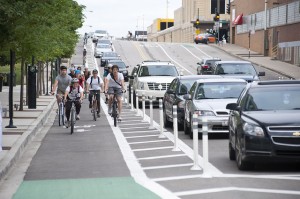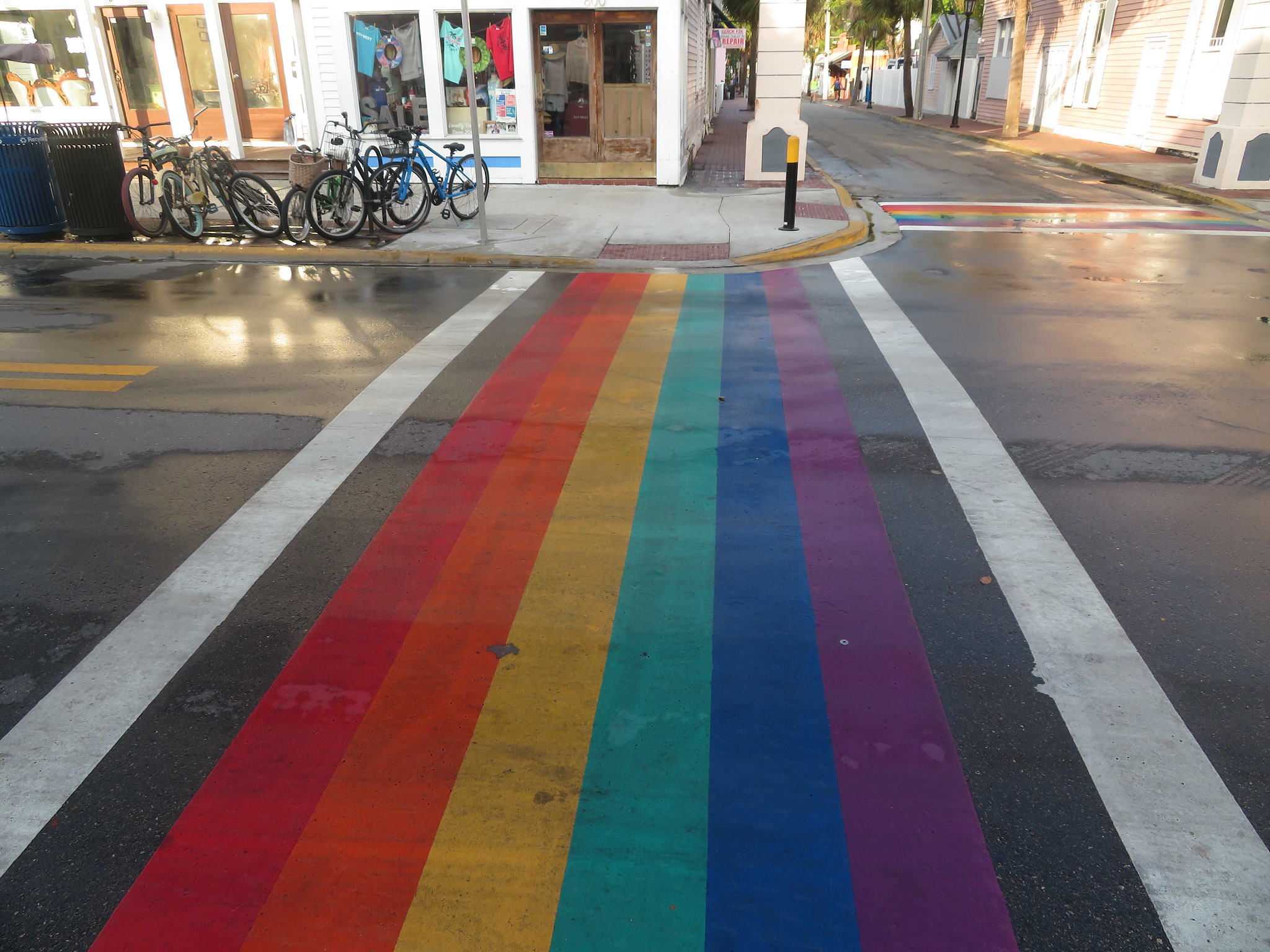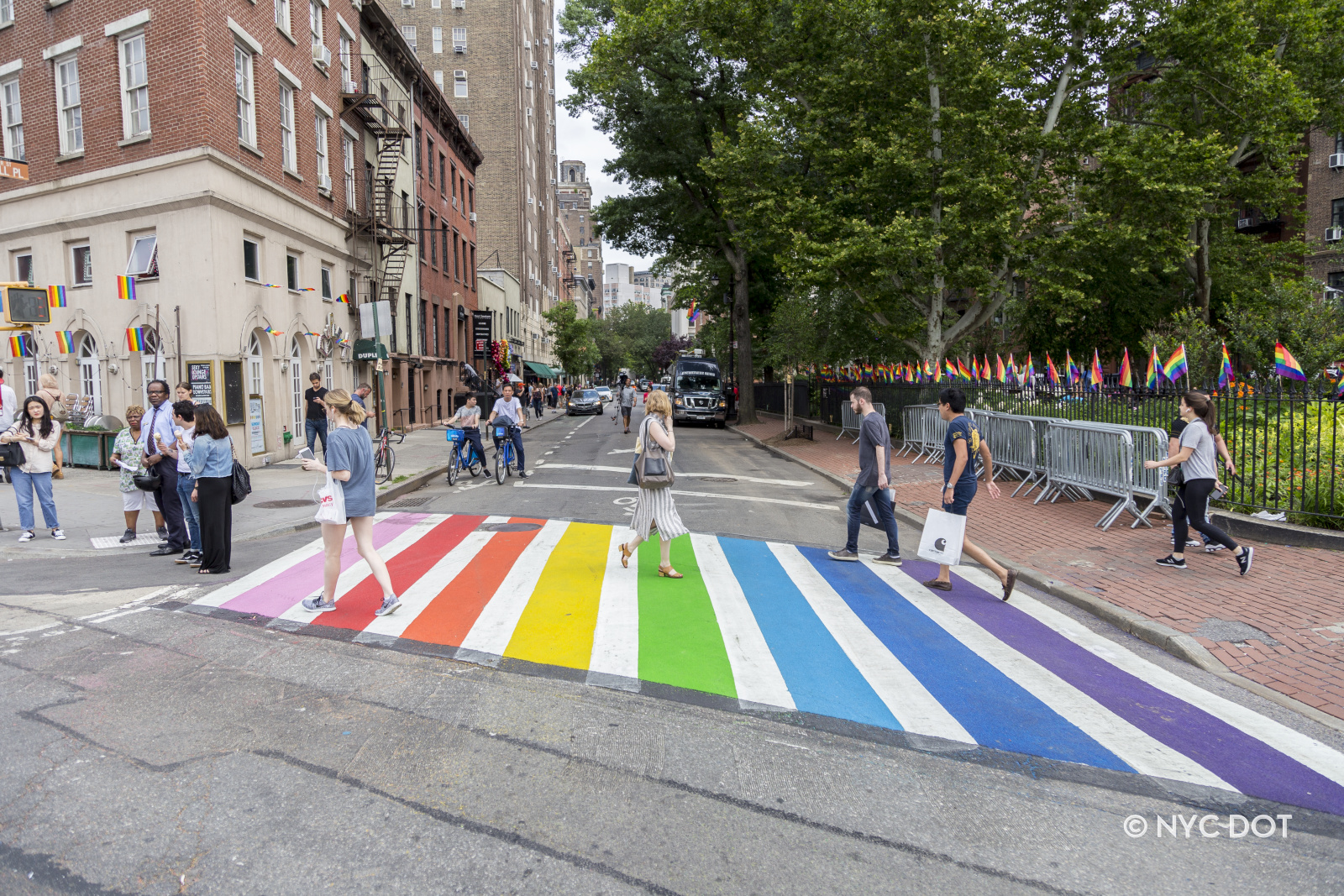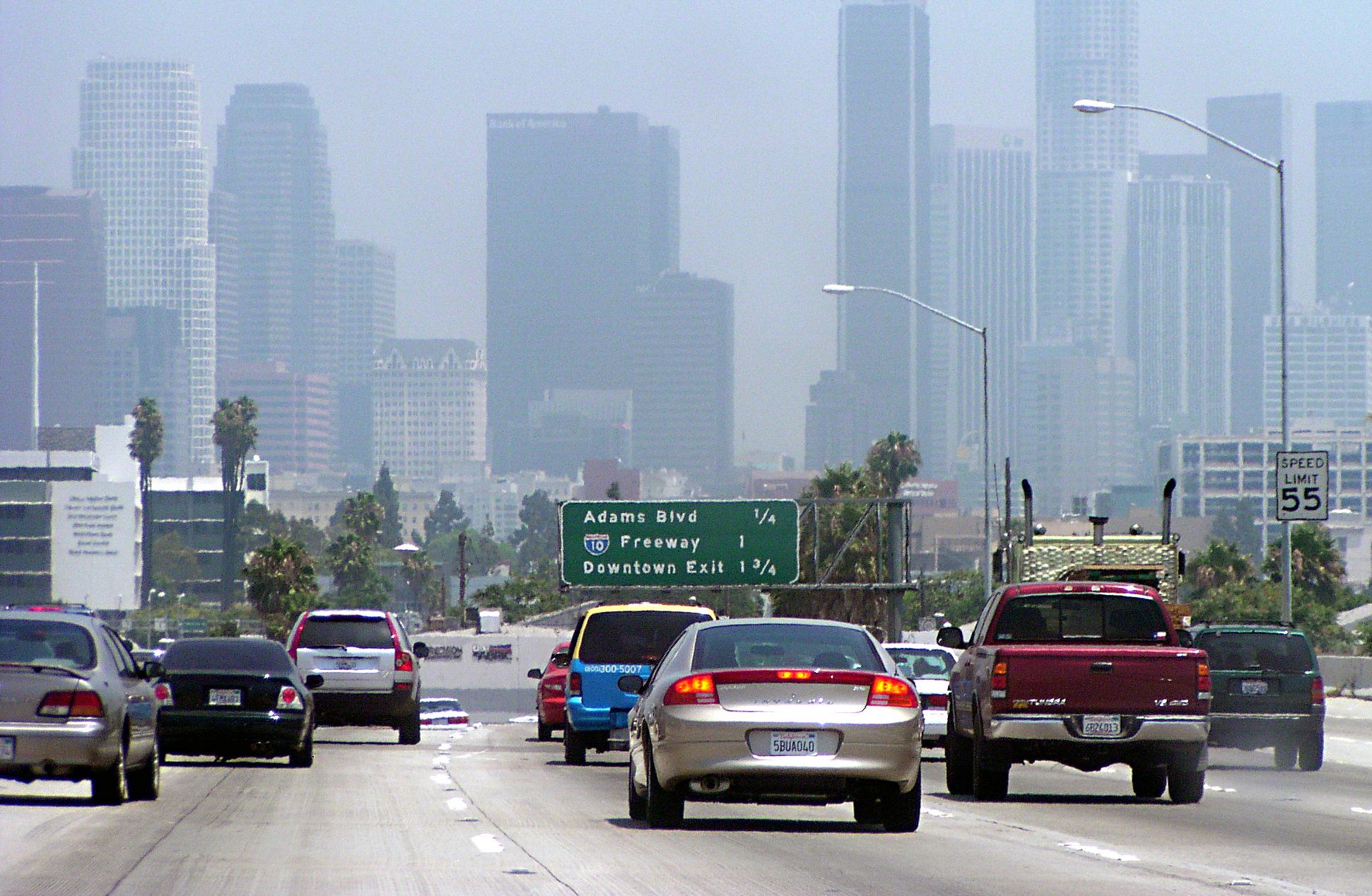In a significant step forward for American bike infrastructure, the Federal Highway Administration issued a memorandum late last month essentially endorsing street designs like protected bike lanes.

In the memorandum, FHWA urges transportation engineers to use the guidelines issued by the National Association of City Transportation Officials, which contains templates for bikeway designs widely deployed in Europe but shunned in the U.S. until very recently.
This federal endorsement is critical because protected bike lanes have yet to be officially sanctioned by the country's most influential transportation engineering organization: the American Association of State Highway and Transportation Officials. AASHTO publishes the "green book," which for many transportation departments serves as the bible of street design. But, being a bit stodgy, AASHTO has never included protected bike lanes in its standards, despite mounting evidence that these designs improve safety.
The exclusion of protected bike lanes from the country's most important engineering guide has stymied growth, since U.S. transportation engineers generally hesitate to use designs that don't have the imprimatur of AASHTO or FHWA. The FHWA memorandum encourages its divisions around the United States to be "flexible" in bicycle design, and refer to both the AASHTO and the NACTO guides for assistance.
"It's great news," says Martha Roskowski, director of the Green Lane Project, an initiative that promotes the adoption of protected bike lanes in American cities. The Green Lane Project recently surveyed transportation professionals around the country about the barriers to installing high-quality bike infrastructure. More than 90 percent of respondents reported it would be helpful or very helpful if FHWA would endorse the NACTO guide.
Many American engineers have felt reluctant to install protected bike lanes, thinking they could held liable for deviating from federal guidelines should a collision occur. As a result, some states, notably California and Illinois, have measures that prevent cities from installing protected bike lanes in certain circumstances. Roskowski thinks this endorsement from FHWA will help resolve that.
"I think we’re sort of pretty close to tearing down that wall in the engineering world, saying, 'We can’t build these,' which has been the response [to innovative bike treatments] from the engineering community in the United States for a long time," she said. "Now there's a convergence of forces saying, 'Yes we can build them.'"
Roskowski said she believes the memorandum is an interim measure, until FHWA develops its own bikeway design guide, which is expected in about a year.





